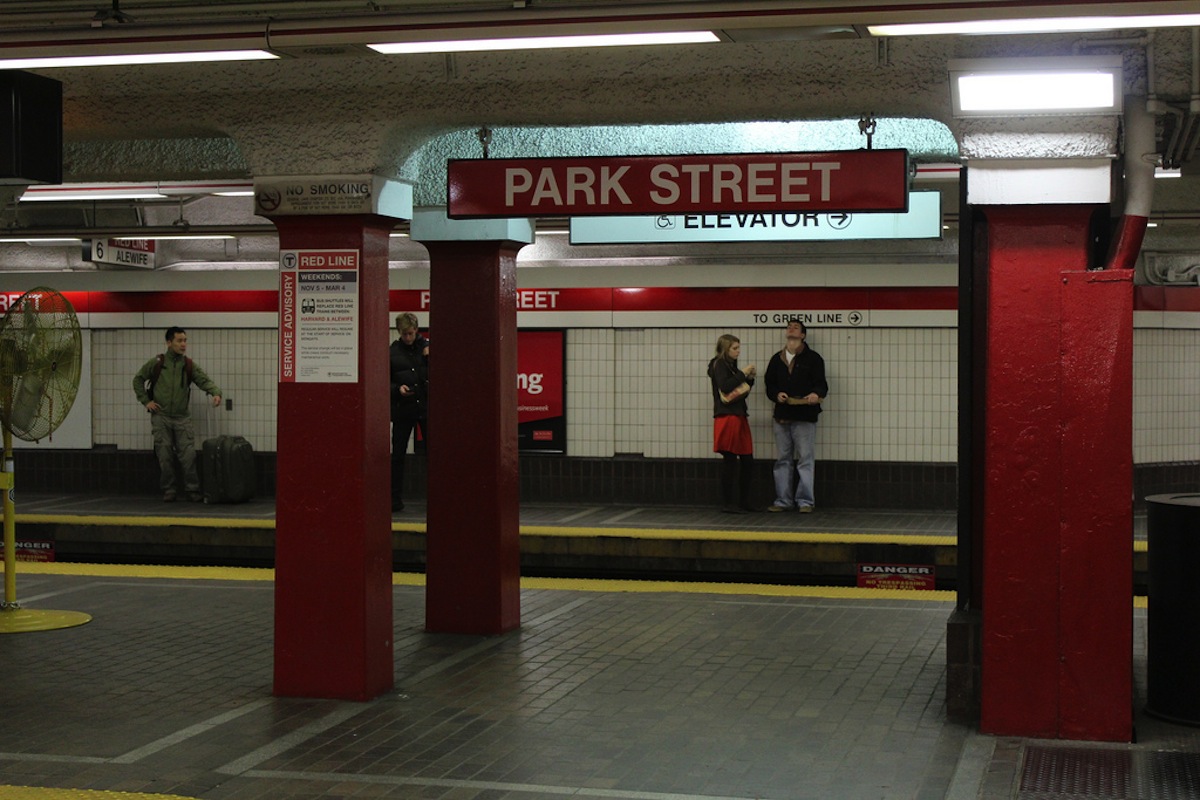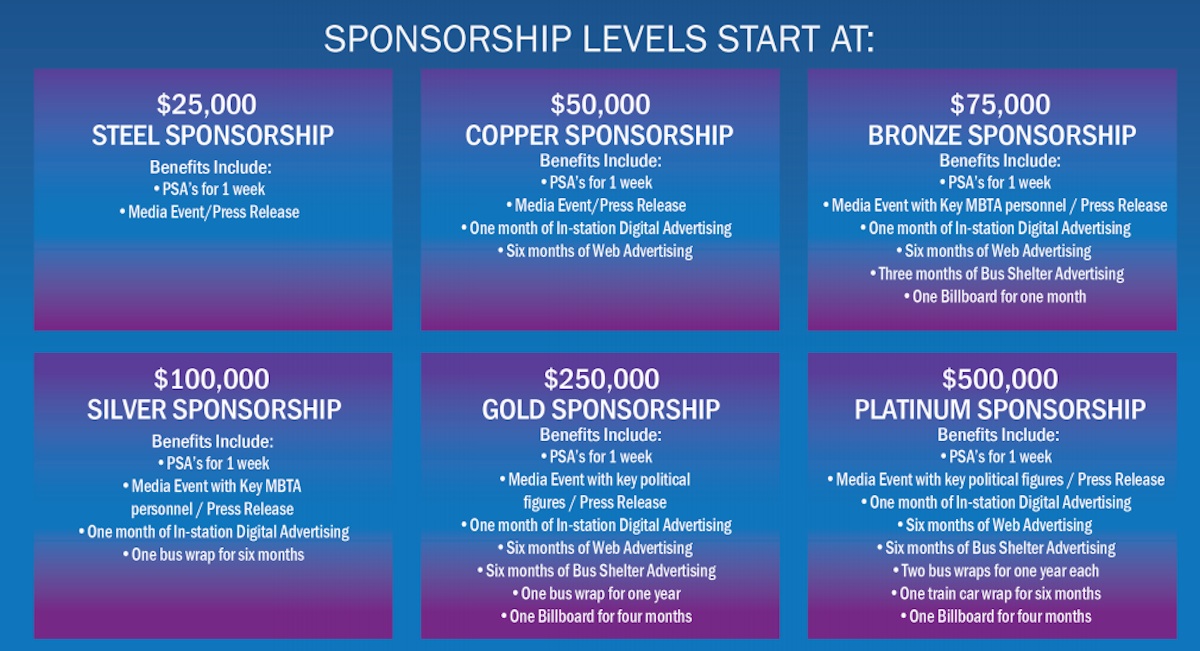No New Companies Stepped Up to Sponsor the MBTA’s Late-Night Service
A lack of interest from corporate sponsors could be partially to blame if the MBTA decides it’s too costly to continue running late-night trains throughout the city beyond a one-year pilot program that launched in March 2014.
According transit officials, despite repeated requests for companies to step up and put money toward partnership deals to help defray the expenses of keeping late-night services running, no organizations have taken the bait.
When asked by Boston if any corporate sponsors signed agreements with the T to advertise their business by entering into a contract with the transit agency, which planned to use those funds to pay for some of the costs associated with operating the after-hours trains, MBTA spokesman Joe Pesaturo said, “unfortunately, no.”
In February 2014, just one month before former Governor Deval Patrick and MBTA General Manager Beverly Scott officially launched the long-awaited pilot, the transit agency unveiled a tiered partnership program offering special deals so companies could purchase ad space on T property, and pitch in to help maintain the new program.
The deals that advertisers could choose between offered a variety of display options based on price, and ranged from “Steel” to “Platinum,” according to the request for proposals. As Boston previously reported, “The Late Night Sponsorship Program” featured six packages, ranging from $25,000 to $500,000, and allowed brand’s logos to go on either buses, trains, or digital signs and billboards at different stations depending on the package.
All of the packages also included a weeks worth of public service announcements to be read aloud on the trains to riders as they took trips:
But no interest in the partnership deals was generated beyond the $500,000 from the Boston Globe, and $250,000 from the Red Sox—$100,000 in cash was deposited into the MBTA’s Operating revenues, which funds late-night and other MBTA services, and the rest went toward promotional services—at the onset of the pilot launch, according to officials.
The fate of the MBTA’s late-night weekend service is currently on the line, and transportation officials expect there will be a decision made about whether or not to recommend extending the pilot program beyond its one-year trial soon. “A presentation on late-night service will be made to the [MassDOT] Board’s Finance Committee early next month,” said Pesaturo.
In a prior statement sent to Boston, Pesaturo said that the pending presentation and open discussion with the board is currently in the planning stages.
The decision on whether or not to recommend extending the pilot comes on the heels of an announcement that the state is grappling with a $765 million budget deficit, according to newly appointed Governor Charlie Baker.
Because of that, top transportation officials have said costs associated with the T’s late-night service will be taken into consideration at the upcoming board meeting. “In the light of our current state budgetary issues, we do have to be fiscally prudent,” acting State Transportation Secretary Frank DePaola told the State House News Service this week.
Ridership numbers will also play a role in whether or not MassDOT and MBTA officials keep the late-night operations in motion. As of late December, 820,000 customers used the T’s service between the hours of 12:30 a.m. and 3 a.m. on Saturdays and Sundays.
Over the course of 10 months, the weekend ridership has been as high as 26,000 people coming in-and-out of the stations during those hours, to as low as 8,000 at times. “The service has been run so far as a pilot and we were always going to come back to the board with the result of that pilot, both utilization by passengers and financial performance,” DePaola told the State House News Service.



